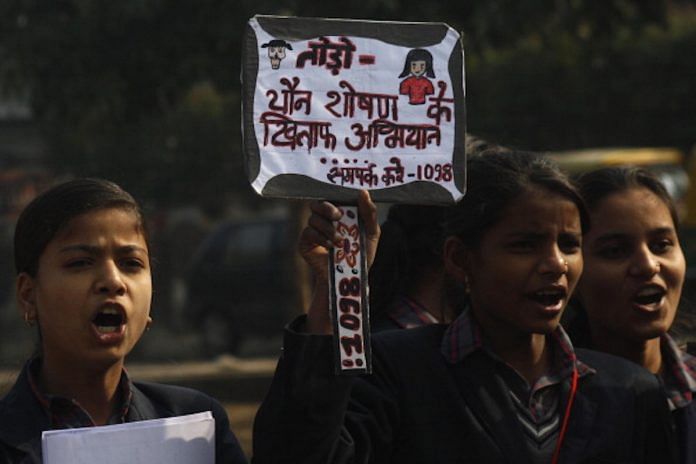Modern scientific understanding and basic principles of juvenile justice require us to provide rehabilitation services to underage offenders
Recent cases about a 16-year-old allegedly involved in the Pradyuman case and a 4-year-old who allegedly sexually abused a classmate, bring to the forefront the public expectation of doling out punishments that are as harsh as the crime committed. Questions about the age of criminal responsibility in India have also risen which need to be unpacked.
Minimum Age of Criminal Responsibility (MACR)
This is the age below which a person cannot be held criminally responsible and is referred to as doli incapax, which means “incapable of doing any harm” in Latin. Section 82 of the Indian Penal Code (IPC) is premised on this and provides absolute immunity from criminal legal responsibility to a child below seven years.
It is based on the understanding that a child below the age of 7 years does not have the mental ability to understand the nature and consequences of his actions and thus lacks the ability to form the requisite mens rea or the intention. Notably, such an age was not arrived at based on any understanding of child psychology, but is “simply an expression of public policy”, “a practical working rule”, and is not based on “any observable fact.”
However, Article 40(3)(a) of the UN Convention on the Rights of the Child (UNCRC) requires States to legislatively prescribe “a minimum age below which children shall be presumed not to have the capacity to infringe the penal law.” The Committee on the Rights of the Child (CRC) considers a MACR below 12 years to be internationally unacceptable and criticized India for its low MACR of 7 years in 2000. It also recommended that protective measures should be taken for such children instead of punitive responses.
Presumption of Doli Incapax
Section 83 of the IPC offers partial immunity to children between the age of 7 and 12 stating, “Nothing is an offence which is done by a child above seven years of age and under twelve, who has not attained sufficient maturity of understanding to judge of the nature and consequences of his conduct on that occasion.”
There is no scientific basis to determine such maturity and courts presumed capacity unless evidence of immaturity was furnished.
For instance, in Hiralal Mallick v. State of Bihar, the Supreme Court upheld the conviction and sentence of a 12-year-old boy, who along with his two elder brothers had been initially convicted for murder; which was later converted by the High Court to one for voluntarily causing grievous hurt by dangerous weapons or means. The Supreme Court noted that Section 83 had not been invoked at any stage of the criminal process implying that the onus is on the defence to establish the child’s immaturity.
According to Crime in India, 2015 data, 602 children below 12 years were apprehended in 2015 for offences. It is not clear how these children have been dealt with and what methods have been used by Juvenile Justice Boards (JJBs) to determine maturity. The CRC has been critical of the discretionary nature of such presumptions and have deemed them to be incompatible with the UNCRC. Yet, India did not raise the MACR to 12 years or remove the doli incapax presumption, when it passed the Juvenile Justice (Care and Protection of Children) Act, 2015.
Upper age of juvenile justice
This is the age below which a person will be dealt with as per the rules of juvenile justice and above which an accused person can be subjected to the adult system of prosecution and punishment. The CRC unequivocally condemned States that have treated 16 and 17 years olds as adult criminals and urged them to modify their laws to ensure that all persons below 18 years are dealt with under juvenile justice to ensure the right to equality and non-discrimination.
The JJ Act, 2015, allows those above 16 and below 18 years alleged to have committed a heinous offence to be tried as adults, if they are transferred by the JJB to the adult court. The JJB should assess the child’s physical and mental capacity, the circumstances in which the offence was committed, and whether the child had the ability to understand the consequences of the offence.
Such an assessment inherently violates the presumption of innocence and jeopardises the constitutional privilege against self-incrimination available to all accused persons. Crucially, no objective assessment is possible because there are no scientific tools or tests available to assess whether the child had the maturity of an adult. Such a sham of an assessment does not meet constitutional standards of procedural fairness and equality or international standards on juvenile justice.
Conclusion
Justice Krishna Iyer’s poignant reflections on the law before the advent of standards on juvenile justice or developments in neuroscience are apt today:
“Adult intent, automatically attributed to infant mens, is itself an adult error…. With all our boasts and all our hopes, our nation can never really be decriminalized until the crime of punishment of the young deviants is purged legislatively, administratively and judicatively.”
While the 4-year-old certainly does not have the mens rea, the 16-year-old’s mental culpability cannot be scientifically or objectively equated to that of an adult. Modern scientific understanding and basic principles of juvenile justice require us to provide rehabilitation services to underage offenders, while setting the MACR to a level that meets international standards.
Finally, a child who has harmed is likely to have been harmed and unless we accept our responsibility – legal, social, and parental, as a community towards ensuring care, safety, and protection of all our children, violence will not abate.
Swagata Raha is a legal researcher based in Bangalore.



